Korean Free Economic Zones (KFEZ)
Overview
As centers of international business where global capital and information gather, the Korean Free Economic Zones offer the ideal management environment for multinational firms. Korean Free Economic Zones are specially designated areas created to improve the business and living environment for foreign-invested firms in Korea and to actively attract foreign investment in the country through a range of deregulation policies. Since the 2003 inauguration of an FEZ in Incheon, the number of FEZs in operation has grown to nine: Incheon, Busan-Jinhae, Gwangyang Bay Area, Gyeonggi, Daegu-Gyeongbuk, Chungbuk, East Coast, Gwangju and Ulsan. Accumulated foreign direct investment in the KFEZs amounted to USD 19.2 billion as of the end of 2020, with 6,140 companies, including multinational firms such as GE and BMW, operating in the KFEZs. The KFEZs have become even more attractive to global investors who knock on the Korean door first when seeking opportunities in Asia.
3F Government Complex-Sejong 13-dong, 402 Hannuri-daero,
Sejong Special Autonomous City, 30118
Republic of Korea
Telephone : +82-1577-0900 Website : www.fez.go.kr Facebook : www.facebook.com/FEZKOREA Linkedin : www.linkedin.com/in/koreafez Youtube : www.youtube.com/user/FEZKOREA
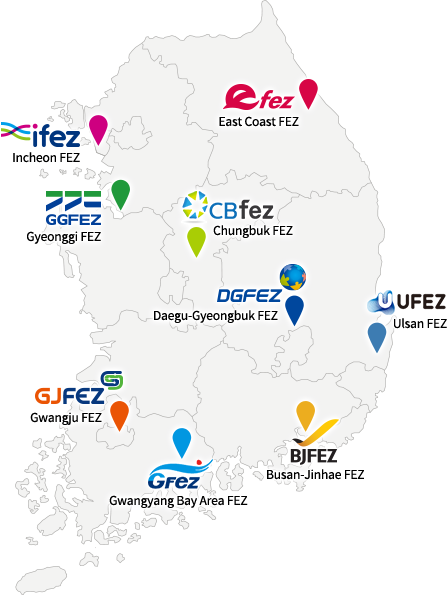
About Incheon FEZ
- IFEZ is designated with an area of 122.43 ㎢ in August 2003 over Songdo, Yeongjong, and Chengna International Cities, including Incheon International Airport/Ports as the hub for the government’s strategy of making Northeast Asia’s economy central.
- Incheon is where the country’s west coast originates, serving as the gateway to Seoul and a metropolitan area with 23 million people and Korea’s economic, industrial, and land development center.
- IFEZ and its adjacent Incheon Port, are highly accessible, with major metropolitan areas only 60-90 minutes away. It houses more than 3,000 companies from advanced technology, bio, leisure, aviation, and finance.
- IFEZ is rich in high-caliber human resources. World-renowned universities on Songdo Global Campus and talented human resources in the metropolitan area.
Investment Advantages
- IFEZ has High-Tech clusters equipped with industrial, research, educational, and residential facilities. We offer a top-tier business model with an extensive pool of on-site partners, Aviation and logistics (324), Robots and drones (190) and Automobile and machinery (760) companies.
- Acquisition tax and property tax will be 100% exempted for R&D companies investing more than 1 million USD and manufacturing companies investing more than 10 million USD.
- Recently, for those companies eligible for financial support in factory and research facility installation expense, subsidies for employment and training have increased by 30%.
- Fortune 500 corporations, such as Boeing, Cisco, Amkor Technology, etc., residing in IFEZ, and BMW HellermannTyton, Brose, Sumitomo electric are also located here.
FDI Projects
- Knowledge & Information Industrial Complex: A robust industrial cluster is being built with companies and research institutes focused on IT, automobile, and robotics moving into the knowledge information industrial complex, which continues to attract organizations in state-of-the-art industries based on world-class IT technologies.
- High-Tech Industrial Cluster: The High-Tech Cluster is being developed into an R&D centered industrial cluster occupied by major companies from Korea and abroad based on its world-class IT facilities.
- Recently, for those companies eligible for financial support in factory and research facility installation expense, subsidies for employment and training have increased by 30%.
- Incheon Technopark Enlargement Development Complex: State-of-the-art research facilities aimed at fostering next-generation growth engines will become the center of Songdo International City They will be further expanded to lay the foundation in building an international R&BD hub that attracts diverse industries.
Yeonsu-gu, Incheon, 22004, Republic of Korea Telephone : +82-32-453-7306 E-Mail Contact : isisuihwan@korea.kr
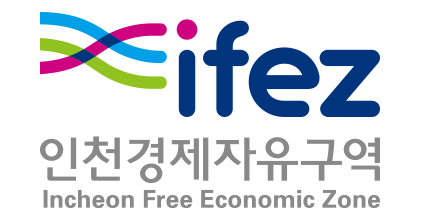
About EFEZ
- EFEZ is the official name of FEZ being developed in order to build the East Coast region of Gangwon Province as the economic center of the Pan East Sea region through the development of advanced materials industry, global tourism & leisure industry, and international business complexes.
- High-tech & Auto Parts Industry Cluster (Size, 209,572㎡) in Gangwon Province, Korea.
- Optimal Place for the South-North Korea Economic Cooperation Project.
- Specialized routes for transportation and distribution.
- Proximity to the Hydrogen Industry Base Area
- Utilization of affluent human resources in Gangwon Province
- Adjacent Large-scale Tourist Complex.
Investment Advantages
- Incentive tax reduction (customs: 100% for 5 years).
- Location support (Max. 100% reduction of rent fee for up to 50 years).
- Cash grant (FDI ratio, 30% or more).
FDI Projects
- Location: Okgye, Gangneung City, Gangwon Province, Korea.
- Size: 0.38㎢ (209,572㎡).
- Industry: Auto Parts Complex.
Gangwon-do, Donghae-si, Republic of Korea
Bukpyeong Okgye Division Telephone : +82-3-3539-7694 E-Mail Contact : sbjjohn@korea.kr
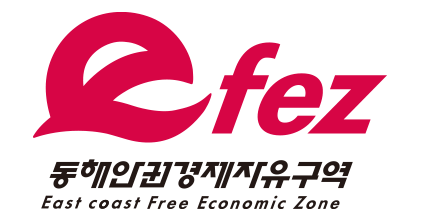
About GGFEZ
Located in the center of the Yellow Economic Belt, the GGFEZ is being developed into three districts around the Pyeongtaek Port including the Siheung Baegot District for researching and developing unmanned ground/underground/aerial vehicles, the Pyeongtaek BIX District, and Hyeondeok District for high-tech and distribution business.
- Competitiveness :
- To support low sales price compared to the near site
- To close core cluster of Semiconductor, Display & Automotive industry in Korea
- To realize future value with mega developments around GGFEZ
- Pyeongtaek port is Northeast Asia’s Logistics Hub for China market
- To provide happy housing for tenant companies
Investment Advantages
- Easy to get business chance with growth engine like Semiconductor, Display and Automotive
- Easy to hire qualified workforces
- To support administrative service with Project Manager
- Easy to close your customers in Metropolitan area of Korea
- Global Companies : Hyundai Mobis, IKEA KOREA, ESR Kendall square, Sumifru Korea.
- Incentives
- Tax Exemption : Tariff(5 years), Acquisition tax (100% for 7 years + 50% for 3 years), Property tax(100% for 15 years)
- Cash support : Employment subsidy, Education and training subsidy
- Other support : Relaxation of Labor regulations, Free foreign exchange transactions, Administrative support
FDI Projects
- “Eco-Friendly Automotive Electric Component Cluster” designated by MOTIE
- Industries : automobile parts, Electronics, Electric equipment manufacturing, Chemical Battery, Unmanned automobile etc
- Major facilities : global complex R&D center, Intelligent Unmanned Vehicle Research Center, Future Mobility Research Center, self-driving track etc
- Invested companies : Hyundai Mobis, YSMIC etc
Han, Sang-Bong Telephone : +82-10-5030-0849 E-Mail Contact : coolhan@korea.kr
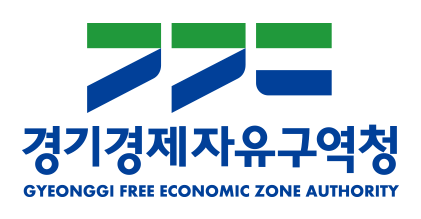
About DGFEZ
In 2008, DGFEZ was established in the area covering Daegu Metropolitan City, along with some cities of Gyeongbuk region including Pohang, Yeongcheon, and Gyeongsan. Its objective was to set up a knowledge-based, creative free economic zone in the area utilizing the domestic knowledge-based industrial infrastructure to differentiate the region from other economic zones already established in the country.
DGFEZ has exerted best efforts to build a global foothold for innovation and growth that can be sustainable. As a result, 30 foreign direct investors have moved into DGFEZ, investing a total of 751 million dollars, as well as some 5.2 trillion won from domestic companies and organizations. In the end, DGFEZ was awarded with the best free economic zone in 2019 from Korean Government.
Business Environment and Infrastructure
Geographical Advantages
The area is close to China, Japan, and Russia, having access to large cities of the world with a total population of more than 1 million within a radius of four hours’ flight. Also, there are more than 100 trains connecting the area with Seoul and Busan, two international airports, eight highways, and seven seaports within a radius of 100km, all contributing to the superb regional transportation network and logistics environment.
Basis of R&D Efforts for the State-of-the-Art Industries of the Future
Building up Research & development Infrastructure and Facilitating joint laboratories with the help of Industry – University Cooperation System has enabled DGFEZ to develop outstanding R&D infrastructure.
Machinery, Parts, and Materials
Gyeongbuk Institute of IT Convergence Industry Technology, Gyeongbuk Hybrid Technology Institute, Daegu Mechanical Parts Institute, Pohang Institute of Metal Industry Advancement, KIMM Daegu Center, Railway Vehicle Fusion Parts Technology Center
IT/SW
Daegu Digital Industry Promotion Agency, Mobile Convergence Technology Center, KITECH Daegu-Gyeongbuk HQ, ETRI Daegu-Gyeongbuk Regional Center, SW Convergence Technology Support Center
Automotive
Gyeongbuk Green Auto Parts Promotion Agency, Gyeongbuk Automotive Embedded Technology Institute, Korea Intelligent Automotive Parts Promotion Institute, Intelligent Automotive Parts Test Driving Ground
Global Industrial Cluster
Located in the industrial and economic hub, Daegu Gyeongbuk Free Economic zone has built up Industrial Cluster such as IT, electricity, electronics, automotive, shipbuilding, petrochemical, chemical industries within a one-hour distance.
Gumi City
A world-class cluster of IT and electric/electronic industries including Samsung Electronics, LG Electronics, Toray Advanced Materials, Exxon Mobil, Asahi Glass, and more.
Pohang City
A world-class ferrous and non-ferrous production engine; home to POSCO, Yonhap Steel, and Hyundai Steel, etc.
Changwon City
Home to mechanical industry big names, such as Doosan Heavy Industries & Construction, Hyundai Rotem, and GM Korea, etc.
Ulsan Metropolitan City
A cluster of automotive, shipbuilding, and petrochemical industries including Hyundai Motor Company, Hyundai Heavy Industries & Construction, and SK Innovation, etc.
Superb Human Resources
Daegu and Gyeongbuk are home to the largest number of universities next to the Capital Area of the country. DGIST, POSTECH, and Gyeongbuk University have annually produced more than 70,000 graduates every year, of whom more than 17,000 are with engineering majors and poised to be the leaders of IT, AI, ICT, and other innovative industries.
Regional authorities have also launched a talent cultivation program called Daegu-Gyeongbuk Innovative Talents Cultivation Program (HUSTAR Project) to train and produce customized human resources for the companies in the fields of medicine, robotics, future automobiles, and other fields of future growth.
Comfortable Living Conditions
Daegu and Gyeongbuk is well known for their nature-friendly cities featuring cultural facilities, large department stores, and discount stores. Also, there are many superb educational institutions including Daegu International School to provide world-class education to students both covering K-12 and secondary education.
Current Status of Districts
DGFEZ consists of four districts in Daegu (Daegu Technopolis, International Fashion District, Sinseo Meditech District, and Suseong Medical District), the other four in Gyeongbuk (Yeongcheon High-tech Park, Yeongcheon Industry District, Gyeongsan Knowledge Industry District, and Pohang Fusion Tech District), totaling to eight districts (18.465km2).
Daegu Technopolis (development in progress)
“A specialized Zone for innovative and state-of-the-art manufacturers” The district is the R&D hub of East Asia and a future-oriented city of innovation and science, home to many businesses, research institutes, and universities, as well as excellent residential, educational, commercial, and cultural infrastructures.
International Fashion District (Development completed)
“The Milano of Asia, Hub of the World’s Fashion Industry” A newly developed multi-purpose district focused on advanced fashion and apparel industries; also home to an innovative industrial complex covering knowledge, information, and communication industries, a compound commercial district focusing on culture and arts, and an environment-friendly, high-profile residential area, with a number of corporate R&D centers, foreign educational institutions, culture, and shopping facilities.
Sinseo Meditech District (Development completed)
“Sinseo Meditech District: a new hub for global medical industries” Sinseo Meditech District has been designated as the core of advanced medical industries by the South Korean government, aiming to serve as a global hub of R&D to lead the world’s medical industry.
Suseong Medical District
“A future-oriented medical and IT complex equipped with global-scale competitiveness” A specialized district for tenants in state-of-the-art IT industries or specialized medical institutions. Designated to lead the development of the country’s medical and IT industries by introducing advanced knowledge and technologies from the world
Yeongcheon High-tech Park (development in progress)
“The future-oriented automotive parts valley aiming to become the world’s No. 1” Developing a state-of-the-art industrial complex for intelligent automotive parts and aviation/electronics industries
Yeongcheon Industry District (Development completed)
“First-tier in parts and materials; a highly advanced investment environment” Poised to be the hub for the global transportation and machine parts industries
Gyeongsan Knowledge Industry District (development underway)
“The center of the world’s knowledge-based industries” A state-of-the-art knowledge-based industrial complex with next-gen construction equipment and parts and state-of-the-art medical devices companies.
Pohang Fusion Tech District (development underway)
“The core of convergence between innovative industries and creation of new knowledge” To develop a district home to many industrialization support organizations, where new technologies and products are developed through convergence between industries.
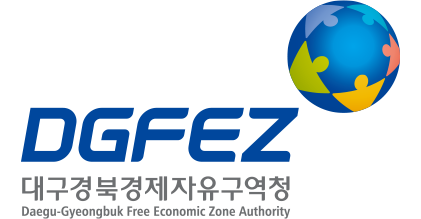
CHUNGBUK FREE ECONOMIC ZONE AUTHORITY
’19.9.11Chungbuk Free Economic Zone(CBFEZ) is a special economic zone developed to improve operational environments for foreign-invested companies and living conditions for foreigners. CBFEZ is designated as the Ministry of Trade, Industry and Energy in 2013 and focuses on cultivating advanced industries such as Biotech and Aviation. Six major government-funded health and medical institutes are based in the CBFEZ including the Ministry of Food and Drug Safety and the Korea Centers for Disease Control and Prevention. Osong is the most important area where manpower and bio infrastructure are integrated. In addition, Korea’s biggest IT-based clusters, including semiconductor and solar energy industries and knowledge-based manufacturers, have found their base in the zone. All business areas will maximize their competitiveness through convergence and integration. Moreover, not only does the CBFEZ offer a range of tax relief, financial assistance and deregulatory benefits for companies in the zone, but it also supplies educational, medical and residential resources for foreigners, providing distraction-free business environments for corporations.
Osong Biovalley

Overview of development
- The only region specialized for biotechnology and the optimal place to attract biotechnology businesses (the Osong High-Tech Medical Complex, the Korea FDA and other permit-granting agencies as well as other government agencies cluster in the zone.)
- Capable of promoting biotechnology-based convergence industries (favorable conditions to attract global businesses specializing in new biotechnology drugs and medical devices)
Development figures
- LocationWithin Osong, Cheongju, Chungbuk (around Osong KTX Station)
- Size4,414 thousand (㎡)
- Project period2013 to 2020
- Total amount of investment1,155.2 billion KRW
- Key industries
- Osong Bio Medical District (Osong Bio Medical Complex): medical research and development institutes, cutting-edge clinical trial centers, research hospitals, etc.
- Osong Biopolis District (Osong Life Science Complex 2): IT, BT, cutting-edge industries and research institutes
Investment merits
Nucleus of the biotech cluster of Northeast Asia
- The Osong Bioscience Complex, the only biomedical industrial complex across the country, and the Osong High-Tech Medical Complex, the biomedical hub of Northeast Asia
- Highest levels of accessibility across the country: within two hours distance from anywhere in the country (one minute distance from Osong KTX Stn.), 20 minutes from Cheongju International Airport, and 10 minutes from Sejong
Optimal place for the biomedical industry, combining research and development, permit granting, and production
- A cluster of the top six government-funded healthcare and medical agencies, biomedical facilities, the high-tech medical complex, key research support facilities for the high-tech medical complex, and other elements of biomedical infrastructure.
- A Northeast Asian biotech cluster has been built (some 100 domestic and foreign businesses have made investments in Osong and Ochang).
Capable of promoting biotechnology-based convergence industries
- Utilizes technological infrastructure for new biotechnology drugs, medical devices, semiconductors and IT products.
- Optimal place for global businesses working toward research and development and product manufacturing.
Cheongju Aeropolis

Overview of the development
- Rising status as a gateway airport to Sejong-si and a hub airport in the Jungbu region
- Increasing necessity to create an aerospace industrial cluster
- Necessity to secure, in a timely manner, key technologies for the knowledge-based industry suitable for developed countries
Development figures
- Locationall over Naesu-eup, Cheongju-si, Chungcheongbuk-do
- Size473,713㎡
- Project cost156.9 billion won
- Project period2013 – 2022
- Key industries
- Cheongju Aeropolis 1: Air transport, logistics, flight training facilities
- Cheongju Aeropolis 2: Part manufacturing, aviation training and research facilities, etc.
Investment merits
Center of transportation and logistics, accessible within two hours across the country
- Network of expressways connecting all directions: four routes from north to south and three from east to west.
- Electrified railroad network: Prospective projects for connecting to the electrified railroad network of the Seoul metropolitan area (Seoul to Cheongju International Airport) and for building a light rail line (Daejeon to Cheongju International Airport) are being worked on.
- Conventional railroad network: the Chungbuk Line, the Jungang Line, the Taebaek Line, and the Jungbu Naeryuk Line. (under construction)
MRO hub to lead the aerospace industries of Northeast Asia
- Until 2021, the Asian aerospace market is expected to grow at an annual average rate of 6.8%, in contrast with 3.9% for the global market. The rapid growth of Asian low cost airlines is expected to result in an increase in the demand for MRO services for medium to large planes (Frost & Sullivan).
- The airport sits at the best strategic location in the aviation MRO industry, capable of minimizing turnaround time. Capable of providing logistics services for a broad range of aircraft components and minimizing turnaround time
- Specialized for the comprehensive aviation MRO services of Korea, Designated as an aviation MRO pilot site in 2009, Mentioned as a favorable hub for aviation MRO in 2010, Accommodates businesses specializing in aviation (LG International Corp. and Sungwoo Engineering)
Osongsaengmyeong 1-ro, Osong-eup, Heungdeok-gu
Cheongju-si, Chungcheongbuk-do
Republic of Korea Telephone : +82-43-220-8386 Fax : +82-43-220-8369 Website : www.cbfez.go.kr E-Mail Contact : dargerich@korea.kr
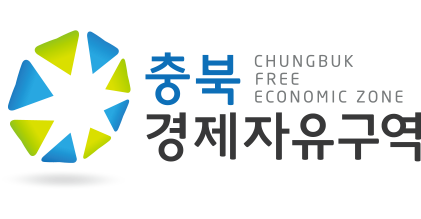
Ulsan Free Economic Zone Authority
Ulsan Free Economic Zone Authority opened on January 14, 2021, to serve as the core agency, therefore, transfer Ulsan metropolitan city into the energy-centered one in Northeast Asia. The authority aims to attract domestic and foreign companies in the hydrogen industry and distinguish the areas: Elecdrogen Auto Valley, Hydrogen Industry Base, and R&D Business valley.
Currently, more than 8,000 companies are based in each zone from petrochemical, automotive, to the shipbuilding industries, and 94 major companies including Duopont, Vopak, Aramco, and Linde are located providing the best environment for business in Korea.
HYUNDAI MOTORS, the company that makes mass production of FCEV for the first time in the world, is located in the zone and it serves the core role to prosper hydrogen mobility in Korea and contributes to the vitalization of the hydrogen economy.
HYUNDAI MOBIS, a major company that supplies auto parts to HYUNDAI MOTORS, is also located in the Elecdrogen Auto Valley, and Samsung SDI, a major company that produces secondary batteries for EV, is located in the High Tech valley while creating synergy effect with local companies in the hydrogen industry.
Ulsan has talented human resources for the R&D sector with the Ulsan National Institute for Science and Technology, UNIST, the world-renowned institute for hydrogen-related research and development.
Finally, the authority offers incentives on tax cuts, cash grants, and deregulations to accommodate foreign-invested companies.
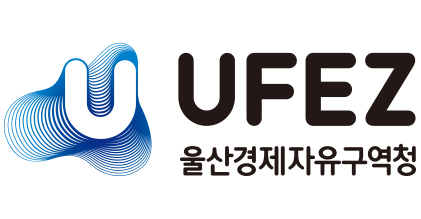
Overview of GJFEZ
Gwangju Free Economic Zone was officially designated by the Ministry of Trade, Industry and Energy in June last year and opened on January 1st in 2021 and is operating as a newly designated free economic zone. As the central city of southwestern part of Korea, Gwangju provides an optimized investment environment in the Asian market with 498 million consumers in 61 cities within 2,000 kilometers. Based on abundant human resources and R&D support, more than 18 research institutes, including Gwangju Institute of Science and Technology (GIST), Korea Automobile Research Institute (KATECH) and Korea Electrotechnology Research Institute (KERI), are located in the urban industrial complex.
Korea's only AI free economic zone is integrating and organically linking four industrial zones and neighboring innovative institutions that integrate Gwangju-type jobs, artificial intelligence-based green automobiles, smart energy, and biomedical industries with artificial intelligence convergence.
Korea's first co-prosperity job project, the finished car factory, was established in Korea in 23 years, established in the world's top 10 data centers centered on artificial intelligence, and has a solid industry-academic network and infrastructure as well.
Investment Advantages of GJFEZ
Major companies in Gwangju include Kia Motors, Hyundai Mobis, Amkor Technology, Samsung Electronics, LG Innotek, Alps, and GRUNDFOS, and Gwangju Global Motors which is Hyundai Motor's OEM plant, LS Industrial Power, NHN are actively operating their business.
The strength of the Gwangju automotive industry is that based on the production capacity of 720,000 cars produced by Kia Motors and Gwangju Global Motors, autonomous vehicles and automotive application component technologies are being advanced, and eco-friendly car parts cluster and eco-friendly car parts certification center have been established. Gwangju Global Motors plans to produce 100,000 compact SUVs annually, and plans to convert them to eco-friendly cars in the future according to the time of production conversion of eco-friendly cars.
In addition, by establishing an eco-friendly vehicle-oriented infrastructure, we create a technological innovation ecosystem to support certification, demonstration, and joint research on various technical fields such as small electric vehicles, lightweight components, fusion automotive application components, and special purpose vehicles. The eco-friendly auto parts certification center operated directly by the Korea Automotive Safety Research Institute will conduct a national certification test of the only eco-friendly car and related parts in Korea, which will include battery safety, collision and impact tests.
Smart Energy Industrial District is focusing on research and development on convergence technology in connection with research base. New industrial energy companies linked to the Korea Electric Power Corporation (KEPCO) will be clustered, and the Korea Electrical Research Institute (KERI) will be established to support the development of power conversion systems, smart distribution core technologies, testing and certification of renewable energy. The Korea Basic Science Institute (KBSI) has been established to operate an open joint research facility specialized in aging research, such as the development of senile diseases and treatment materials.
In addition, KEPCO College of Engineering, which is directly operated by the KEPCO, will have 600 masters and 400 undergraduate degrees, and will be the only energy-related university in Korea operating from 2022.
Finally, the AI convergence complex will have an ecosystem specializing in artificial intelligence convergence, improving innovation and technology competitiveness of the three major industries in the region. In particular, the largest national data center in Korea will be established, operated by NHN, and provided to various AI-related companies by supporting companies such as data collection, scale, analysis and processing. The computing power of data center in Gwangju is 88.5PF and it’s storage capacity reaches 107PB.
In line with this, GIST operates the Graduate School of AI, and more than 50 master's and doctorate personnel are nurtured annually, and a total of 1,200 professionals will be produced through the Academy of AI by 2023. In order to enter the market for companies Gwangju, the largest public investment fund in Korea has also been raised to 100 billion won in the first stage and is planning to operate the final 740 billion won fund will be operated.
Buk-gu, Gwangju Metropolitan City, 61003, Republic of Korea
Korea Juno Oh(Director) Telephone : +82-62-613-6051 E-Mail Contact : ohjuno@korea.kr Mike Lee(PM) Telephone : +82-62-613-6063 E-Mail Contact : lsy7187@korea.kr
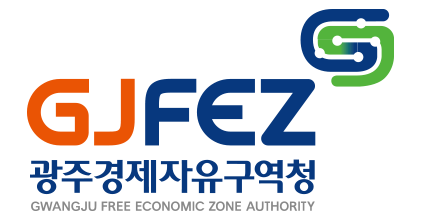
General Information
- With the goal of “The global hub for international business and logistics”, Busan-Jinhae Free Economic Zone (BJFEZ) takes a leap toward the center of Northeast Asia by developing ports & logistics, high-tech industrial parks, international business city, foreign educational & medical institutions, and tourism and leisure complexes.
- Busan-Jinhae Free Economic Zone is Korea’s No 1. logistic hub, with superior infrastructure, including Busan New Port with capacity of 56 berths by 2040, Gimhae International Airport, railroad and expressways.
- Around 40% of machinery and mechatronics companies and over 50% of automobile components companies are located in BJFEZ area.
Advantages
Global logistics hub
An optimal logistic center connecting major seaports around the world (124 times from America, 32 times from Europe, 84 times from Japan, 78 times from China, and 148 times from Southeast Asia per week).An integrated sea-air transportation system connecting Gimhae International Airport with Busan New Port
Industrial infrastructure with global competitiveness.
The world’s seventh largest cluster of conventional auto industries, such subcontractorsof automobile companies (Renault Samsung Motors, Hyundai Motor Company, GM, etc.).
A new cluster of electric vehicles with KORENS EM & its partner companies.
A desirable city to live with beautiful natural landscape and resort & leisure facilities.
A place where various festivals (Busan International Film Festival, Sea Festival, Fireworks Festival, International Motor Show, G-Star, etc) take place year round.
A paradise of water sports (yachting, surfing, paddle boating, wind surfing, kayaking, etc.)
FDI Projects
Electric Vehicle Cluster
KORENS EM and 20 partner companies are expected to produce a total of 4 million powertrains from 2022 to 2031 and will export all of them.
Investment will be up to USD 660 million for 10 years to produce powertrains, creating 4,300 direct hiring decent jobs, and create a future automobile components manufacturing hub.
Foreign Investment Zone
Target Industries: state-of-the-art industrial business, such as new growth engine andmaterial parts equipment businesses.
Qualification: foreign-invested companies with 30% of equity investment or more, foreign investment at least equivalent to the site construction cost (within 5 years)
Mieum Foreign Investment Zone: Total Area: 299, 584m²/Available Area: 168,000m².
Nammun Foreign Investment Zone: Total Area: 71,271m²/Available Area: 30,790m².
Gangseo-gu, Busan, Republic of Korea Investment Strategy & Planning Division
Andrew Noh, Project Manager Telephone : +82-51-979-5222 Mobile : +82-10-3575-8008 E-Mail Contact : eonjoo@korea.kr facebook : www.facebook.com/bjfez Youtube : www.youtube.com/channel/UC8_2hesb8mZcmMIKvEJBUgg linkedin : www.linkedin.com/company/bjfez
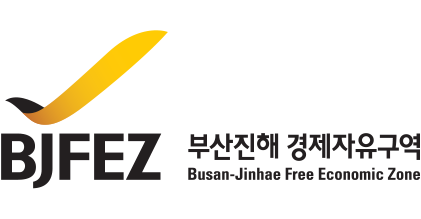
About Gwangyang Bay Area FEZ (GFEZ)
- Location (Municipalities)Location (Municipalities): Gwangyang, Suncheon, & Yeosu Cities in Jeonnam Province and Hadong County in Gyeongnam Province
- PopulationApprox. 800,000
- Area59.8 ㎢
- Outstanding transportation infrastructure as a logistics hub to the Northeast Asia with optimized seaports, railways, highways, and airports.
Investment Advantages
New Business Expansion Opportunities based on close accessibilities to raw materials and hi-tech manufacturing industrial sites
POSCO Gwangyang Steelworks, a stable producer of more than 20 million tons of steel annually, is the best supplier of raw materials for steel makers.Yeosu National Industrial Complex, Korea's largest petrochemical industrial complex, can provide raw materials for the fine chemicals and new materials industries.
POSCO Gwangyang Steelworks, over 20 million tons of stable supply of steel.
Preferential conditions for fine chemical and new material industries.
Integration of secondary battery-related industries
POSCO Chemical has invested KRW 1.4 trillion in Yulchon Industrial Complex to create a secondary battery material industry cluster.
Integration of secondary battery-related industries
POSCO Chemical has invested KRW 1.4 trillion in Yulchon Industrial Complex to create a secondary battery material industry cluster.
The combination of natural environment and urban infrastructure creates the foundation of business development
Gwangyang Bay Area offers an array of attractions to tourists with beautiful natural scenery and luxury recreational facilities.
Various attractions such as Yeosu Expo, Suncheon Bay National Garden, Gwangyang Maehwa Village, Gyeongdo Resort District, Geumo-do must be enjoyable with a rich table of delicious food.
Affordable industrial sites and support from research institutes
Investment Incentives
Cash grants from the central and local governments, investment promotion subsidies from local government can be provided to foreign-invested companies.
FDI Projects
Integration of secondary battery-related industries
· POSCO Chemical has been active in investment in chemicals for rechargeable batteries amid surging demand as global automakers scramble to go electric and eco-friendly due to tighter environmental regulations.
POSCO Group has been pushing to boost its EV business in recent years as part of a diversification strategy.
POSCO, the world's fifth-largest steelmaker by output, broke ground in May 2021, for a plant in Gwangyang to extract lithium hydroxide, a key material for EV batteries.
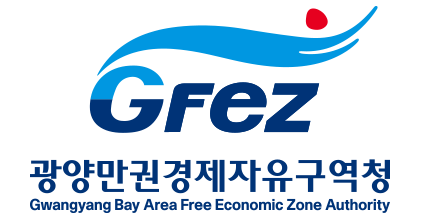
-
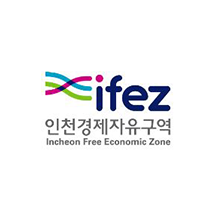
인천 경제자유구역
Incheon
Free Economic Zone -
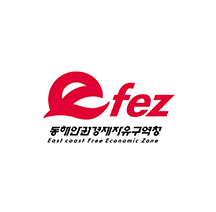
동해안권 경제자유구역
East Coast
Free Economic Zone -
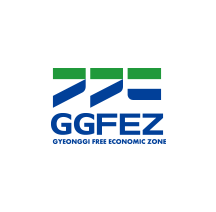
경기 경제자유구역
Gyeonggi
Free Economic Zone -
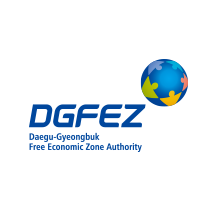
대구경북 경제자유구역
Daegu-Gyeongbuk
Free Economic Zone -
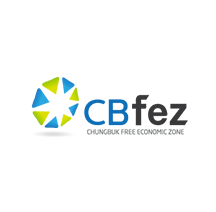
충북 경제자유구역
Chungbuk
Free Economic Zone -
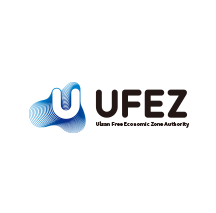
울산 경제자유구역
Ulsan
Free Economic Zone -
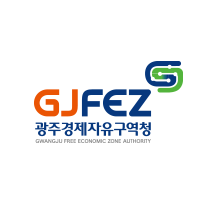
광주 경제자유구역
Gwangju
Free Economic Zone -
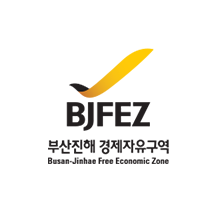
부산진해 경제자유구역
Busan-Jinhae
Free Economic Zone -
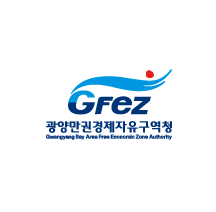
광양만권 경제자유구역
Gwangyang Bay Area
Free Economic Zone



